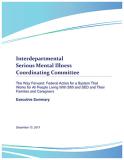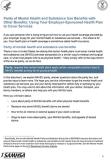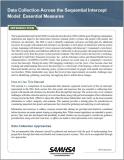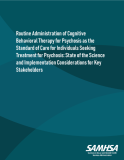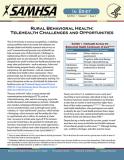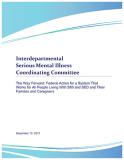
This report shines the spotlight on the critical issues and services for Americans with serious mental illnesses (SMI) and serious emotional disturbances (SED), and the importance of concerted efforts by the federal government to address their needs. The report presents the current status of federal activities and a summary of advances in the care and treatment of people with SMI and SED. The report describes key advances in research and strategies to improve services to these individuals based on presentations given by the Interdepartmental Serious Mental Illness Coordinating Committee (ISMICC) members at the first ISMICC meeting.
Units per Product
Download
The Way Forward: Federal Action for a System That Works for All People Living With SMI and SED
File Type: PDF
File Size: 4.16 MB


